Robin de Jesús on ‘tick, tick…Boom!’ and finding power in queer characters
Robin de Jesús hits a new career high with director Lin-Manuel Miranda's adaptation of "tick, tick...Boom!"

Seated at a dress rehearsal performance of Jonathan Larson’s tick, tick…Boom! several years ago, Robin de Jesús, didn’t realize he was glimpsing both his past and his future. He was there partly to support good friend and former In the Heights co-star Lin-Manuel Miranda, who was starring in the Encores! revival alongside Leslie Odom, Jr. and Karen Olivo, but de Jesús knew little about Rent composer Larson’s other acclaimed musical.
“I didn’t know the plot, really, other than the synopsis on the CD,” the actor recalls. But the show’s semi-autobiographical tale of a young theater composer, Jon, desperate to complete his masterwork before his time runs out, resonated powerfully with then-thirty-year-old de Jesús. “It hit real hard, that idea of time and what are you doing with your time, and what are you contributing? Ego, ego, ego, ego. I connected with that, but I never really thought, ‘Oh, that’s a show I’m going to be in.'”
In fact, a couple of years later, de Jesús was offered a role in an Off-Broadway production, playing Jon’s best friend Michael, a gay, struggling actor racked with doubt about his talent and career. “But I ended up doing this play called Homos, Or Everyone in America at Labyrinth.” Still, as so often magically happens in show business, the play and the part eventually found their way back to him. In the new Netflix film adaptation of tick, tick…Boom!, de Jesús, who’s openly gay, delivers a moving performance as Michael opposite Andrew Garfield as Jon, and a cast including Alexandra Shipp, Vanessa Hudgens, MJ Rodriguez, and cameos by a host of Broadway legends.
A passionate, ’90s-set musical with contemporary style, the film marks Miranda’s feature directing debut, and a professional reunion for the award-winning In the Heights and Hamilton creator and de Jesús, who was Tony-nominated for his Heights role as teenage bodega employee Sonny. The Connecticut native has gone on to add two more Tony nominations, as Best Featured Actor in a Musical for the 2010 revival of La Cage Aux Folles, and Best Featured Actor in a Play for his role as Emory in Joe Mantello’s star-studded revival of The Boys in the Band.
He and the entire Boys Broadway cast went on to revive their roles for Mantello and producer Ryan Murphy’s film adaptation, also for Netflix. A year later de Jesús was on the tick, tick…Boom! set, once again at work with Miranda, though for the first time with his friend directing him on-camera.
“I remember a specific day where he asked for a shot, he improvised something,” de Jesús says. “And he said to Alice Brooks, our [director of photography], who’s fierce, ‘Alice, can you just turn the camera on its side? Shoot it lopsided?’ And she was kinda like, ‘Oh.’ And then we did it — it was for something really specific, it was real quick — and it was so brilliant. I remember in my head, I didn’t say it out loud, I was like, ‘Okay, you know things! Okay.’ But all jokes aside, I’m proud of him because a lot of people don’t know what to expect from him in this capacity, and I think it’s going to be really good.”
As an artist who considers contributing goodness to the world to be of paramount importance, de Jesús doesn’t make that assertion lightly. “I want to make sure that my actions heal my DNA, heal my trauma, heal my ancestors. That is what I want to fuck with through my work,” he says. “I’m corny: I want to do good, I want to heal, and I want to do bomb-ass work.”

METRO WEEKLY: I thought you were great in the movie, Andrew Garfield’s great. But first I want to ask you about Lin-Manuel, because this is his first movie as a director, and I think a director who’d done 20 movies could be pleased with this movie. What was it like working with him as a first-timer on something?
ROBIN DE JESÚS: So listen, Lin’s my boy. He’s family. I sang at his wedding. We did a Broadway show together, but I’ve never seen him really direct. But there’s a part of me that also, in retrospect, was like, “Oh, he’s been directing forever. It just hasn’t been specifically called that.” He’s been in that position, but hasn’t been called that. So I was curious. That’s my boy, I love him, but I don’t know what he’s like as a director. So there’s a part of me that was a little suspect on set. It was really cool to watch my friend, who I already know is brilliant. Being in this business, where the extraordinary is consistently the ordinary, you forget how fierce your friends are. You genuinely forget. And then you watch them do their thing, and you’re like, “Yo, my friend is fucking brilliant.”
MW: How old were you when you did In The Heights together on Broadway?
DE JESÚS: The first time that I ever did Heights, a reading of it, I was 20. By the time we got to Broadway, I was 23. I remember turning 21 with some of the cast members. I’ve gone through multiple deaths during Heights. I lost my virginity, thanks to Lin during Heights. Not with Lin, but thanks to Lin. There were so many firsts. I really grew up, I really matured, and it was such a blessing because the early part of my career was so Black and brown and I came from a surprisingly diverse background where I grew up. I’m from Connecticut, but my school was minority majority. So my first couple of Broadway shows being so diverse, and my film work, it was like, I got to taste what real community was like in a different way.
That really did save me, because later on in life, as I progressed and as things got more, I guess, elevated, whatever you want to call it, the rooms got whiter and I didn’t clock that that cultural shift had affected me in a certain way. I think what saved me was that knowledge of what Heights felt like: “I know how good it can be and this is not it, so something ain’t right.”
MW: Since In The Heights, you both have done and accomplished a lot. How was it to reconnect, collaborating as the artists that you’ve become?
DE JESÚS: It was cool. It was great. I will say that there was a plus for me in that I did audition for this role. I still had to earn it. So there was something about that that really felt good to me. Lin’s my boy, but I do audition for him. That happens often. To actually get the gig off of merit, and then get to be there with him for that moment was really, really dope. It’s already difficult to shoot a movie, and to shoot it during the middle of a pandemic, and it’s his first one. It meant so much to me that he said it ended up being such a lifeline for him to be able to have a face he knew on set, to be able to have that connection and safety and familiarity, to ground and root.
Now we’re men. We’re grown-ass men. We’re more in our power. We have a shorthand, whether it’s cultural, whether it’s because we worked together, or whatever. Lin can just say two words, or there are times where I could look at him and I know what it is, and we don’t have to say much. So it saves time, but also it’s like working with him — tying this to what I mentioned earlier about the rooms changing and then there being a cultural switch — Lin is someone who’s so centered on joy, and it’s really important for him. Part of his sustainability in this business is making sure that the set is joyous, and that’s infectious. That’s viral. It was really cool to just remember that source again and go back to it. It was really healing coming back to work with him again, because it was centered on all the right things. It was really good at quieting ego, that vibe and energy that he created.
MW: Movie musicals are having a nice resurgence, be it either original musicals on film or adapting stage musicals, like In The Heights or West Side Story. From where you’re sitting, are the industry and modern audiences finally learning to not be so scared of live-action musicals?
DE JESÚS: I have so many thoughts. I think the musical thing is accumulative. I think it’s the result of several things, like there’s a bit of a trifecta there. I think that the musicals thing is partially all those kids who grew up on Glee are now full-blown adults who can pay for full-price tickets on their own, with their grown-up money. Broadway typically is a place where the demographics lean older. So I think there is something about Glee, and Hamilton‘s popularity, and people like Sarah Bareilles, Cindy Lauper, John Legend writing for Broadway shows now, that it’s like, “Oh, we’re cool again.” Or it’s cool to be a nerd, or lo que sea, whatever it is. So I think that that trifecta has led to this resurgence that everyone’s really, really, really excited about, and I’m fully with it.
I just want that resurgence to be equitable, because musical theater has taken from people. When you look at Shuffle Along, and the way it took from Black folks, and didn’t bring them along with it, when we look at so many white writers who will write Latino stories or Asian stories, or whatever. They dip in other cultures, and we get cast as actors, but not behind the scenes. So I am hoping that the consciousness of the pandemic, and the desire for more musicals, can intersect a little more and actually be about the people instead of passing as such.

MW: Another one that’s in the news recently is Wicked, which they’re turning into a movie. You did it on Broadway. Would you be interested in appearing in the movie?
DE JESÚS: As who? I’m too old for Boq. I’m not the wizard. I could be Dillamond maybe. You know what? I want to be the guy that just goes, “The wizard will see you now,” and then peace out.
MW: What are your thoughts on Ariana Grande as Glinda and Cynthia Erivo as Elphaba?
DE JESÚS: You know what? Just thank God we finally got a person of color in there to actually play the part. And I don’t mean that that makes it good casting. I don’t mean that at all. I’m just saying it’s about damn time.
MW: Since she is green.
DE JESÚS: I don’t know why it’s always shocking to us, because white supremacy is going to be white supremacy. So I don’t know why we are always surprised when it shows itself in the room. But I’m excited for it. I think John Chu shoots beautifully, and I’m really excited to see what he does. I think that Ozdust Ballroom is going to be glorious. I want to know what Oz is going to look like. They are gonna sound glorious together.
I’m excited for Ariana because I’ve known her since she was twelve. Actually, funny enough, Ariana was a fan of In The Heights Off-Broadway, and she used to come with her brother Frankie. Then I remember she used to come to my other show, La Cage, but she saw Heights on Broadway a bunch too. I remember the first time I was on the highway in L.A. and I heard this song, and I was like, “Ooh, I like this. What is it?” I Shazamed it, and it said Ariana Grande, and I was like, “That little girl at the stage door is on the radio?” I know her to be this theater geek, this nerd, and I know how much she loves Wicked. I haven’t spoken to her or seen her in years, so I’m not trying to act like she’s my best friend, but I could tell by her posture and her presence that this is going to mean a lot to her, and that she’s going to be really excited and happy. So, I’m excited to see how that shine comes through.
MW: Is there a musical not being made that you’d love to see?
DE JESÚS: Yo, yo! Thank you so much for saying that because it did come to me. I think it’s the perfect time for a Urinetown film. I think we’re living in an apocalyptic world, and motherflowers will charge you for anything possible. So the idea of a musical about where you have to pay to quite literally pee or get arrested, I think there’s something there. I think there’s ways to go even further with it that the Broadway show didn’t do. I’m trying to play Bobby Strong all day.
MW: We’ll put that out into the universe then. Now that Broadway is back, have you seen anything, or are you planning to see something?
DE JESÚS: I went and saw Hamilton again, which was great. I’m supposed to see Dana H. tomorrow, but I think I might have to postpone. Everyone who knows me knows that Caroline, or Change changed my life.
MW: How so?
DE JESÚS: When I tell you I was low, I was blue. And I remember walking through Times Square, I was a waiter at the Bubba Gump Shrimp Company. I was not happy there. I had heard on the message boards about this musical Caroline, or Change, and people kept referring to “Lot’s Wife” as this aria. And I was just like, “Wait, is it an opera? Is it an opera because it’s sung through?” Okay, cool, cool, cool. I just didn’t know much. And at that time in my nerddom, I knew everything about a show before I saw it. I walked down to Times Square. I go to TKTS. I was like, “They’re 50% off. Let me go see that.” They were in previews. And I sat, and when I tell you, divinity presented itself, because I instantly entered the world.
The first thing I clocked was that Shoshana Bean was with some friends, five rows down. And as a nerd, I was like, “Oh my God, that’s Shoshana Bean. Oh my gosh, she’s here on her off night from Hairspray.” So I geeked out over that, and then, show starts and immediately I was like, “I don’t know what’s happening,” and then Tonya [Pinkins] came out and she looks like my aunts. She looks like many of my relatives. She said things that I heard my mother say growing up, and I was feeling certain things. But also just the complexities of the character, musically what was happening, the idea of inanimate objects presenting ancestry and lineage, but also providing emotional insight or narrating to the audience. I just thought it was so beautiful and so cool and so simple.
First act ends, and I sobbed. When she gave those kids the quarter, it was a wrap for me. Second act, I was done for. I won’t even overindulge on talking about it, but I’ll skip to the effect: I quit Bubba Gump’s. I decided to go back to college afterwards, which I didn’t actually go to. And all around, just thought to myself, “This is what I want to do. This is what I want to create.” I read an interview with one of the producers — was it Margo Lion? — that said something about, “I knew that this show wouldn’t make money, but it deserved to be on Broadway. It deserved to have that platform and that audience.” As a young romantic person, creative, I just thought that’s what it’s about. That’s what I want to be doing. I want to make life-changing art — which sounds so corny, but I still stand by that.
MW: In tick, tick…Boom!, your character Michael originally moved to New York to be an actor, but he struggles, and then turns to advertising. It occurred to me that Michael would kill to have the career that you’re having. But have you ever been in a spot like he is, wondering, “Okay, what am I going to do if this doesn’t work out?”
DE JESÚS: Yes. I’ve been in the spot of wanting to leave. I’ve given myself a timeline. This business is weird. First, let me acknowledge the privilege, because it’s real. Being in this business, people want to connect with you, the moments of walking into a restaurant and not having to wait in line for something, the moments that someone’s styling you, people wanting to serve you, that is very real. That comes with it. It’s also not human. It’s not normal this way. Movie stardom and fame and celebrity of any kind, it’s a weird thing on the head. So I feel like doing work like this requires a lot of mental health check-ins, of consistency in that, too.
I think in that turning 30, there was a moment of, “I don’t know that I can do this thing of having two years where I’m financially mad comfortable, and then a year of I don’t know what’s going to happen.” That inconsistency, I was like, “Maybe I don’t want to sign up for this.” But eventually, what came through was A, ain’t shit else I can do. I don’t know what else I know how to do. And B, I wasn’t centered on joy. There was an ego thing happening. I wasn’t protecting my creative process. White supremacy is going to white supremacize, whenever it can. I had to figure out what my relationship was with that dance, I guess.
I used to hate when people would accept awards and say, “Oh, this is so humbling.” I’m like, “That’s bullshit. You just got an award. You have all eyes on you, and you talk about ‘This is so humbling.'” But now, I genuinely do have a different understanding, because I look at my friends, I look at the communities that I’m a part of, and there’s so much ferocity and fierceness and talent, what I think of as people who deserve more eyes on them, but for whatever reason, opportunity is not presented.
So to clock that I know people who are just as fierce as I am, some of whom are even more fierce, and haven’t been able to do what I now get to do, that to me is humbling. That sense of gratitude, it helps me quiet the ego, because it helps me center what is really real, what’s love. Are my actions coming from love? Am I choosing love with my creativity? I think that that’s what the fuckery of the business made me doubt for a while. Because when we first start doing this, it’s called play — it’s literally called you do a play. And then somewhere in it, once the play comes with a paycheck and the business is attached, these other hoes show up, these other hoes that want to distract from what you really should be focusing on. So I’m just happy to be at a place now, where when I start letting those motherflowers in the room, I can redirect and choose. That’s what’s sustainable for me.

MW: Something I thought was really beautiful in this movie was the depiction of a gay man and straight man being best friends, which isn’t necessarily everybody’s experience. Have you had a straight bestie, that kind of relationship?
DE JESÚS: Yeah. I guess it’s different when you’re a creative — not to say that all people are like this, because that toxic masculinity will present itself in all kinds of crazy places — but you do tend to find more straight men who aren’t afraid of having amicable intimacy with a gay man. That’s so nice when you can just really connect in that way, because even for me, I know that there are moments where when I get around a straight guy, I notice, “Oh, why are you acting like the kid butching up on his way to the bus stop?” There are certain gestures or gesticulations that I have that have remained, and are now a part of Robin, from the years of mascing. So it’s not performative. It just was like when I was protecting myself, some of that shit stuck. And I’ll notice that when I’m with straight dudes, sometimes it’s triggered, and my behavior, my posture will change.
So when I find a straight dude, where I clock it, and I allow myself to be authentically me, and then they do as well, it’s really beautiful and really healing. I won’t lie to you, I do think about it. When I’m with my straight friends who are very loving and treat me as they know I’m their equal, I always clock, like, “Ooh, yeah, let’s heal this. Let’s heal this.” It is really beautiful, and the thing with Andrew is, like Andrew is lovey-dovey. We’ll just have a moment where we’ll just hug each other, just have a beat, conserve energy, and do our work. So, there was something of that that did bleed into me and Andrew as well when we were working.
MW: What you’re talking about is very much like how, in The Boys in the Band, Emory and Alan, the “straight guy,” get into it about being fem or masc. What was it like stepping into the shoes of those pre-Stonewall gay men?
DE JESÚS: You know what’s funny? That role was the hardest role. Emory was the hardest role for me to find in anything I’ve ever done. It took me a minute to clock what it was, and it was many things, but one of the things that came through was not fully, fully, fully letting the coin drop on the amount of oppression they were feeling, the amount of shame. And as the person who’s the proudest one of the bunch, who’s the one who is willing to go there and to be authentically himself, I think there’s a part of me that was trying to skip that. It just became really evident to me in the process that I had to hurt a little, that I needed to allow that in. Because one of the things I’m really big with for my characters is I always want to know where my characters’ sadness and trauma comes from, because that shapes who they become as an adult.
It’s just funny that for whatever reason with Emory, I think there’s a part of me that wanted to avoid doing that. And eventually three weeks into rehearsals, it was like, “Nah, boo, you’re going to have to really, really face this.” And when that happened, what I actually found was even more of a connection to Emory’s culture, because my Emory is different than any other Emory you’ve ever seen. My Emory’s the only one who’s a Puerto Rican-New Yorker that I’ve seen, and I come from proud people, from really proud people.
He was the one Latino man making fun of a Black man in a group of white guys. He was clearly hurting, and he then went out of his way to hurt someone else. So that pride that he had, I don’t know that my Emory’s pride came from being gay. I think my Emory’s pride came from being a Puerto Rican, and navigating the machismo at home and then coming into these white folks and navigating that as well, but mom and dad taught me to hold my head up high.
Also to add to that, that 1960s time period, New York, as a Puerto Rican, was a time of a lot happening sociopolitically as well. And so I just think that’s such a rich time period for Puerto Ricans in New York. Obviously, Stonewall is a big, big deal, but it was so nice to touch on that, too, because that is something that Hollywood culture just completely ignores. In essence, it was ignored in the movie. That was the work I was doing for my character, but hopefully, it shines through for somebody.
MW: On Broadway, you were nominated for a Tony for the role. Does it feel weird in a large ensemble cast like that to be the one who’s singled out with a nomination?
DE JESÚS: No. [Laughs.] No, because you know what? The way this business works, there are certain roles that even when you just read the writing, they cater…. Listen, I’m fierce, don’t get me wrong. I’m not taking away from myself or my blessings, but that role is really good. And Cliff Gorman, may he rest in peace, he was also the one that got love in the original production. [Gorman received an Obie Award in 1968 for his performance as Emory.]
So I find that when it comes to someone like Emory, you just need to find an actor who knows what to do, because everything is there. It’s funny, Mario Cantone, he and I spoke one day about that character. And he goes, “Robin, I couldn’t find what you found.” He says that when he saw me do it, it made sense. And I remember there was a period, actually, where I kept rereading the script, because I thought, there’s something that I’m not getting here that’s in between the lines, but it’s in there. So I’m going to walk back what I said and say that Emory’s there, if you choose to see him, or if you’re able to get the glimpse. So the nomination is like, my vision was twenty-twenty.
MW: Taking it back to Jonathan Larson, one of the themes of his work and his life was “live now,” which is an extremely good message for this moment. What other messages do you think tick, tick…Boom! holds for today’s audience?
DE JESÚS: Jonathan was really big on just being super present, but the other one is fear or love, which also goes back to being present. It’s like your actions, your intentions, where are they coming from? And fear presents in many ways, fear presents as ego, fear presents as confusion, fear presents as anger.
I have a friend that I work with, we do a lot of spiritual healing work together, she always says, “The heart speaks concisely.” I think that that’s actually one of the things that’s so brilliant about Jonathan. There’s a simplicity and a conciseness to the way he writes, that it is a reduced fraction. It is the most human you can possibly get, which is why I think it’s actually very easy for Jonathan’s work to be done poorly, because if you’re not doing the work, the lyrics might seem basic, but there’s so much meat on that bone that you better make sure you devour every bit of it if you really, really pay attention.
I think Jonathan’s other massive contribution was just community. When you look at Rent and how that group stuck up for itself and commenting on the way the neighborhood is changing. When you look at tick, tick…Boom!, and he’s pointing out the AIDS epidemic and crack, and what it’s doing to everyone around him and the neighborhood he loves and the people that he loves. It’s that reminder that we’re a collective, a come back to the village mentality, because we can heal each other or we can help heal, or at least go through shit together if we have to.
tick, tick…Boom! opens in theaters nationwide on Friday, Nov. 12. Local theaters include Landmark’s E Street Cinema, Bethesda Row Cinema, and Atlantic Plumbing. Visit www.landmarktheaters.com.
The movie will be available Friday, Nov. 19 for streaming on Netflix. Visit www.netflix.com.
Read More:
The Secret of Chucky: How Don Mancini created a contemporary horror icon
Harvey Guillén talks Shadows, Reacher, and what might happen if Guillermo became a vampire
Healthy Outlook: Ryan Moran on What’s Next for Whitman-Walker Health System
Support Metro Weekly’s Journalism
These are challenging times for news organizations. And yet it’s crucial we stay active and provide vital resources and information to both our local readers and the world. So won’t you please take a moment and consider supporting Metro Weekly with a membership? For as little as $5 a month, you can help ensure Metro Weekly magazine and MetroWeekly.com remain free, viable resources as we provide the best, most diverse, culturally-resonant LGBTQ coverage in both the D.C. region and around the world. Memberships come with exclusive perks and discounts, your own personal digital delivery of each week’s magazine (and an archive), access to our Member's Lounge when it launches this fall, and exclusive members-only items like Metro Weekly Membership Mugs and Tote Bags! Check out all our membership levels here and please join us today!









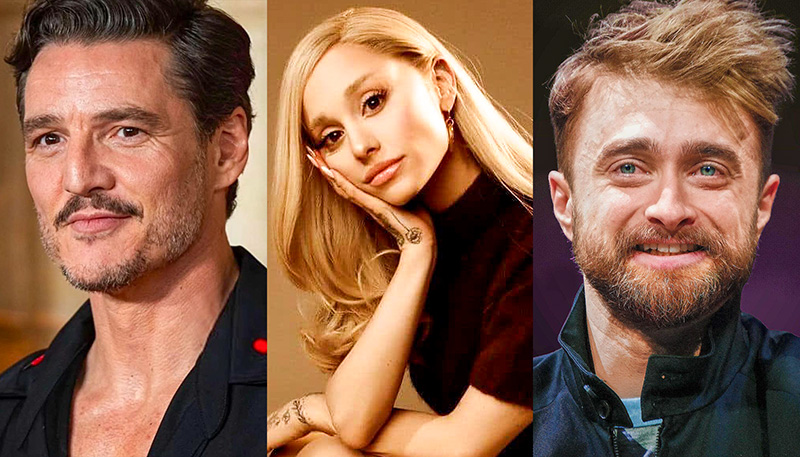
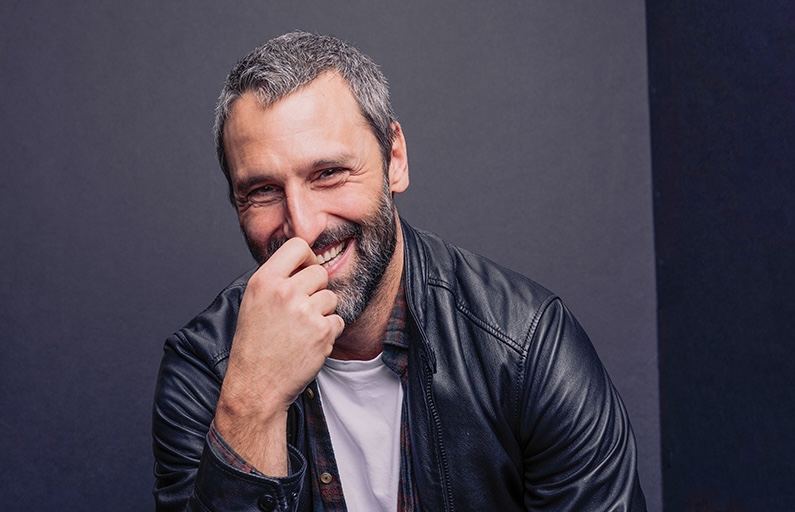
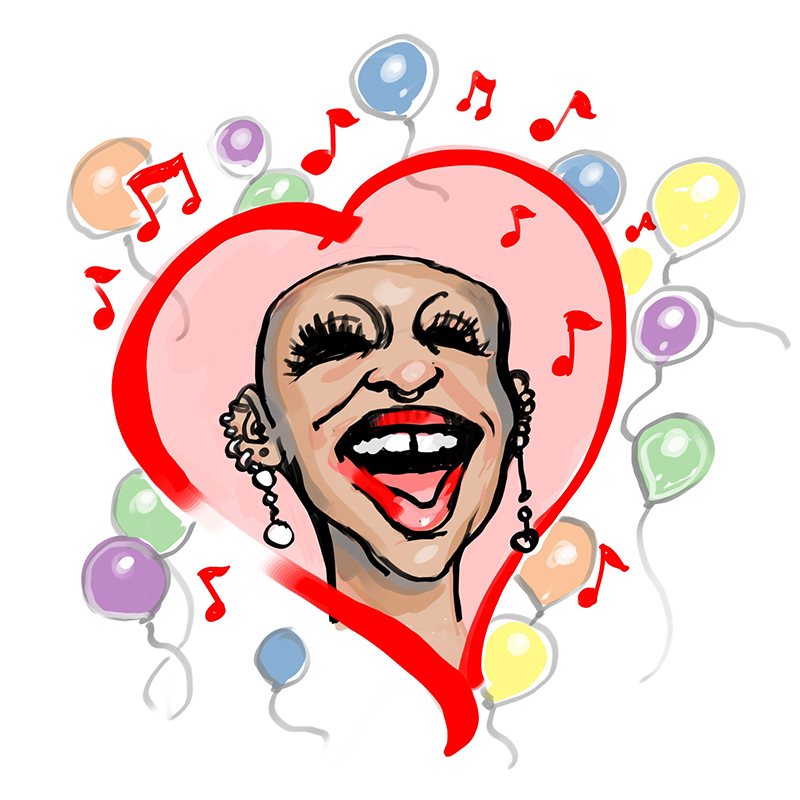













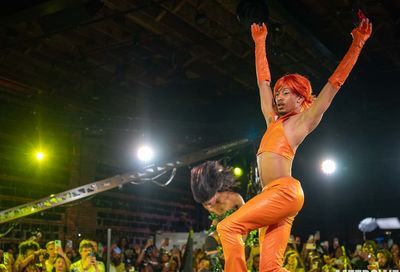
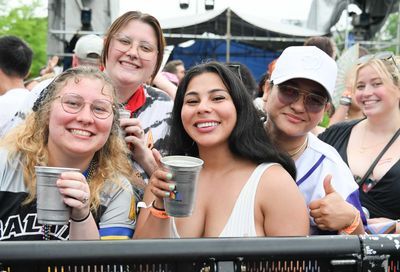
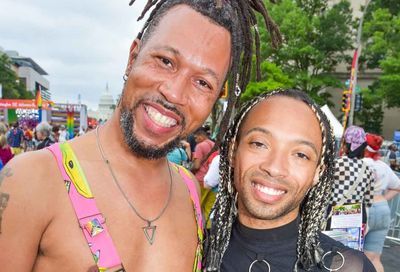
You must be logged in to post a comment.